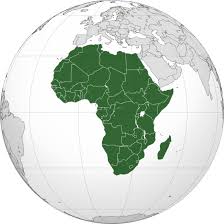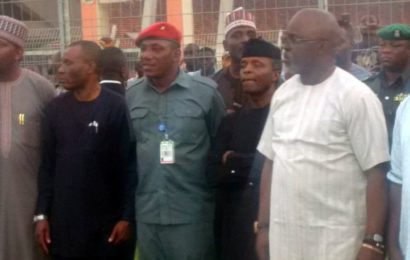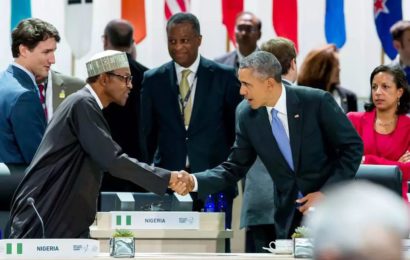 The Ambassador of the Kingdom of the Netherlands to Nigeria, Amb. John Groffen, on Wednesday said that his government would continue to follow-up on the Federal Government’s clean-up project in Ogoniland.
The Ambassador of the Kingdom of the Netherlands to Nigeria, Amb. John Groffen, on Wednesday said that his government would continue to follow-up on the Federal Government’s clean-up project in Ogoniland.
Groffen told the News Agency of Nigeria(NAN) in Lagos that although the clean-up of Ogoniland was a Nigerian project, his government had always taken interest in the project.
“We have always followed up on the Federal Government of Nigeria’s efforts on the clean-up of Ogoniland.
“We have tried to help the Nigerian government in its effort of setting up a system for the speedy Clean-Up of Ogoniland.
“We believe that, with the extent of pollution in the area, it is important to make sure that the Clean-Up project is in line with
internationally recognised standards.
“We are following up this Clean-Up project. And, we have confidence that the project is the right approach to the Clean Up of Ogoniland,’’ he said.
The Ambassador said that his government had been trying to offer assistance indirectly to the Nigerian Government in setting up a system for the clean-up.
Groffen, who commended the commitments of the former and current Ministers of the Environment to the Clean-Up of Ogoniland, said that preparation was ongoing for the exercise.
“We have been following up on the Clean-Up. And, the preparations for the Clean-Up have only recently started.
“We also know that it has been a long time since the United Nations Environment Programme(UNEP)’s Report on Ogoniland was published.
“And we know the efforts that had been made by the former and current Ministers of the Environment, in getting the Clean-Up project really started,’’ he added.
For decades, oil extraction in the Niger Delta has led to wide-scale contamination of the environment. However the full extent and intensity of this contamination was never clear to authorities and the public.
The Nigerian Government in its desire to internally reconcile the Ogoni people and ensure the clean-up and remediation of past oil impacted sites in Ogoniland, set up a Presidential Implementation Committee in July 2006, headed by Bishop Mathew Hassan Kukah.
In view of its competence and experience in conflict and disaster management, as well as its capabilities for unbiased monitoring as a pre-requisite for clean-up and remediation work, the Obasanjo Administration commissioned the United Nations Environment Programme (UNEP) to carry out an Environmental Assessment Study of the oil impacted sites in Ogoniland. UNEP eventually commenced the Environmental Assessment of Ogoniland,
which lasted from 2009-2011.
The last administration, in a bid to implement the UNEP report established the Hydrocarbon Pollution Restoration Project (HYPREP) as a vehicle for the Ogoniland and other impacted areas in the Niger Delta region. A gazette to this effect was published in July 2014.
Further to the need for extensive consultations with all relevant stakeholders, preliminary meetings were held in September and October, 2014 in Abuja.
This was followed by a meeting of stakeholders in Geneva, Switzerland in November, 2014 and another meeting in Abuja, Nigeria on 23rd June, 2015 and 28th – 29th July, 2015.
President Muhammadu Buhari inaugurated the clean-up of Ogoniland on June 2, 2016 in Bodo, Rivers State which has been ravaged by devastating oil spillage in the last 10 years, destroying farmlands, aquatic life, and unleashing monumental and multiple forms of land, air and water pollution in the process.
Meanwhile, the U.S. Ambassador to Nigeria, Stuart Symington, in his remarks at the Movement for the Survival of the Ogoni People (MOSOP) Office in Port Harcourt last week, commended the Federal Government for initiating steps to resolve the challenge of environmental pollution in Ogoni-land.








